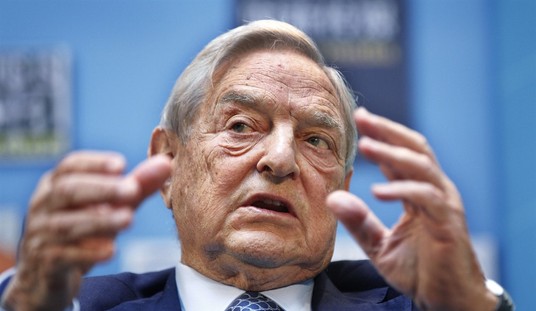People will say and do anything to get elected. They will violate what they stand for and go back on their words. In normal times, this Standard Operating Procedure, though ugly, does not mean a whole helluva lot. But these days, such things are life and death matters on a global scale.
So in the interest of the “search for truth,” I am setting up a little quiz. Who wrote this oped for The Washington Post on Sept. 19, 2002 entitled: “Congress Must Be Clear; Quick action will ensure that politics plays no part in the debate about Iraq“? Answer here, but don’t peek. First read the text:
The debate over Iraq is not about politics. It is about national security. It should be clear that our national security requires Congress to send a clear message to Iraq and the world: America is united in its determination to eliminate forever the threat of Iraq’s weapons of mass destruction.
Fast congressional action to reinforce our resolve is more imperative, not less, in light of Saddam Hussein’s recent overture to allow U.N. inspectors back into Iraq. That is a gambit we have seen before. Congress needs to act now to make clear to our U.N. allies and to Iraq that the United States will not stand for the usual half-measures or delaying tactics.
Drafting an appropriate resolution that a large majority of Congress could support should not be difficult. The outlines of such a resolution are already clear. In fact, the biggest debate right now is over the politics of “timing.”
There’s no better way to remove politics from the process than to go straight to a debate over substance. Quick, bipartisan congressional action will ensure that politics plays no part in this debate. It will also strengthen America’s hand as we pursue support from the Security Council and seek to enlist the cooperation of our allies.
The resolution should be strong and unambiguous. It should not be a blank check for the administration, but neither should it try to micromanage a war from Capitol Hill. It should spell out the broad elements of a process that will preserve the legitimacy of American actions, enhance international consensus and strengthen our global leadership.
Here’s what I believe the resolution should say. First and foremost, it should clearly endorse the use of all necessary means to eliminate the threat posed by Saddam Hussein’s weapons of mass destruction.
Second, the resolution should call for an effort to rally the international community under a U.N. Security Council mandate. The president’s speech last week was an important first step, and his belated diplomatic efforts have already borne fruit. At the same time, we must not tie our own hands by requiring Security Council action. Congress should authorize the United States to act with whatever allies will join us if the Security Council is prevented
from supporting action to enforce the more than 16 resolutions against Iraq.
Third, Congress should demand that the administration take real steps to win the peace. The only chance for Iraq to become a democratic, tolerant state — and a model for the Arab world — will be through sustained American involvement. We will need to help provide security inside Iraq after Hussein is gone, work with the various Iraqi opposition groups, reassure Iraq’s neighbors about its future stability and support the Iraqi people as they rebuild their lives. Congress also should consider authorizing funds now to support such
efforts, rather than waiting for events to force us to act with emergency spending.
Congressional pressure to secure our victory is especially necessary because of the administration’s performance in Afghanistan, where we have been dangerously slow to help provide security and support democracy. This is wrong today in Afghanistan, and it will be wrong tomorrow in Iraq. In fact, the president’s silence about any U.S. commitment to a post-Hussein Iraq was a conspicuous flaw in his speech last week before the United Nations.
Congress must also make clear that any actions against Iraq are part of a broader strategy to strengthen American security in the Middle East. We must do more to support existing nonproliferation and disarmament programs that can helpprevent access to the weapons-grade materials that tyrants such as Hussein want. We must demand America’s active and continuous involvement in addressing the crisis between Israel and the Palestinians and in promoting democracy throughout
the Arab world. We must commit to developing a national strategy for energy security, one that would reduce our reliance on the Middle East for suchcritical resources.
Iraq is a grave and growing threat. Hussein has proven his willingness to act irrationally and brutally against his neighbors and against his own people.
Iraq’s destructive capacity has the potential to throw the entire Middle East into chaos, and it poses a mortal threat to our vital ally, Israel. Thousands of terrorist operatives around the world would pay anything to get their hands on Saddam Hussein’s arsenal and would stop at nothing to use it against us. America must act, and Congress must make clear to Hussein that he faces a united nation.
Sad, huh? Whatever happened to that united nation? Whose fault is that?









Join the conversation as a VIP Member